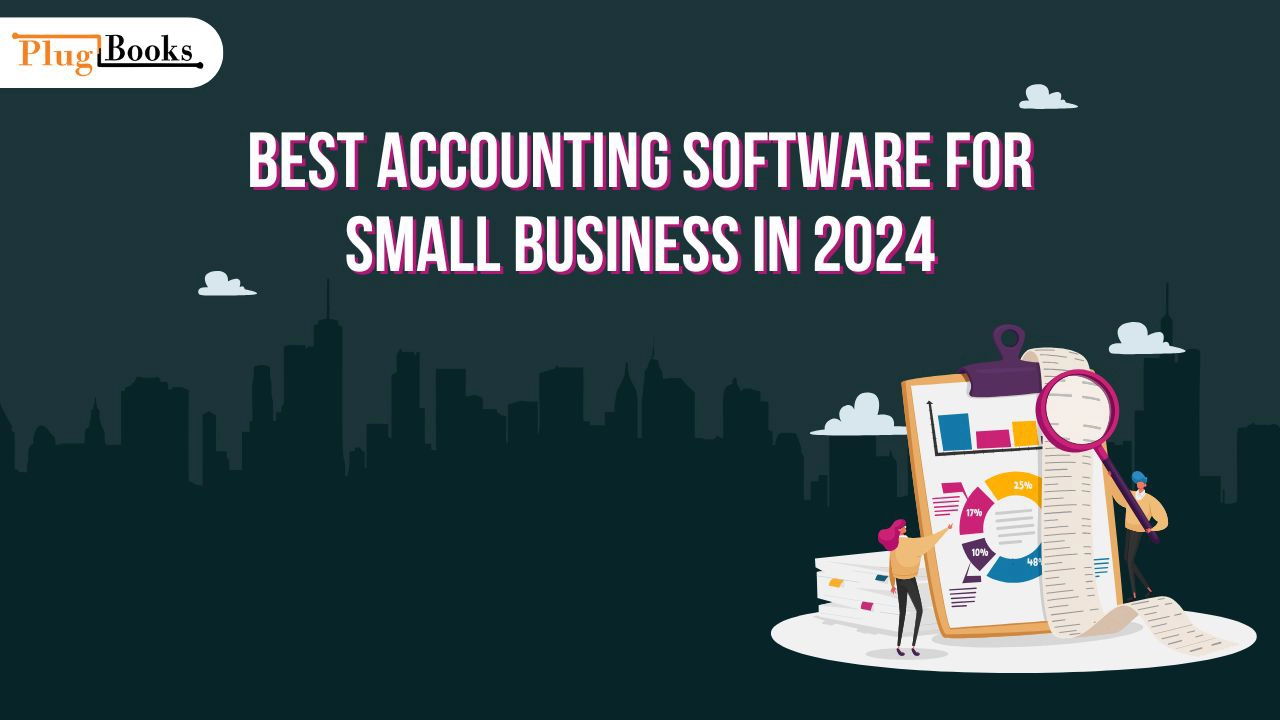When it comes to managing finances for your small business, having the best accounting software is essential. A good accounting tool can make the difference between staying organized and losing track of your cash flow. Whether you’re handling payroll, taxes, or day-to-day expenses, choosing the right software is a game changer.
In this guide, we’ll walk you through the best accounting software for small businesses in 2024. We’ll cover top picks, key features, and how to choose the right solution for your business needs. Plus, we’ll help you understand why these tools can save you time and money in the long run.
What Is Accounting Software and Why Do Small Businesses Need It?
Accounting software helps small business owners track and manage their financial activities. From invoicing and payroll to expense tracking and tax preparation, these tools provide everything you need to stay on top of your finances. With the right accounting software, you can:
- Automate time-consuming tasks
- Ensure accuracy in your financial reports
- Improve cash flow management
- Stay compliant with tax regulations
With so many options out there, it can be overwhelming to choose the best fit. Let’s break down some of the top accounting software for small businesses available today.
1. QuickBooks Online: Best for Comprehensive Features
QuickBooks is one of the most popular and trusted accounting software options available. It offers a wide range of features that can accommodate both small startups and growing businesses. Here’s what makes it one of the best:
- User-friendly Interface: QuickBooks Online is designed to be easy for non-accountants to use.
- Comprehensive Features: It includes invoicing, expense tracking, payroll, tax preparation, and even inventory management.
- Integration Options: QuickBooks connects seamlessly with various third-party apps, making it versatile for all types of businesses.
Key Benefits:
- Scalable as your business grows.
- Detailed reports and insights to help you make informed decisions.
- Strong customer support and an active user community.
Pricing:
QuickBooks offers various plans, starting from $25/month for the Simple Start plan, and scaling up depending on the features you need.
2. Xero: Best for Collaboration
If you’re working with a team, Xero might be the perfect solution. This cloud-based software is designed to make accounting simple and collaborative, offering real-time updates and seamless integration.
- Real-time Collaboration: Xero allows multiple users to access financial data simultaneously, making it ideal for teams.
- User-friendly Dashboard: Xero’s dashboard provides an intuitive view of your cash flow, balances, and outstanding invoices.
Key Benefits:
- Unlimited users, even in the basic plan.
- Supports bank feeds and multiple currencies.
- Excellent mobile app for managing your finances on the go.
Pricing:
Xero offers a 30-day free trial and plans start at $13/month, with additional features available in higher-tier plans.
3. Wave: Best Free Accounting Software
For small business owners on a tight budget, Wave offers a robust free accounting software solution. While it may not have all the advanced features of paid software, Wave covers essential tasks like:
- Invoicing: Create and send professional invoices with ease.
- Expense Tracking: Automatically track your business expenses.
- Receipts Scanning: Snap photos of receipts and upload them for easy record-keeping.
Key Benefits:
- 100% free for core features (though paid add-ons like payroll are available).
- Intuitive and easy to navigate.
- Cloud-based for remote access anytime, anywhere.
Pricing:
Wave is free to use for accounting, invoicing, and receipt scanning. Payroll and payments come at an additional cost.
4. FreshBooks: Best for Invoicing and Time Tracking
FreshBooks is an ideal solution for service-based businesses that need to manage clients, time, and billing all in one place. Whether you run a freelance business or a small consultancy, FreshBooks can help streamline your financial operations.
- Invoicing Made Easy: Create and send invoices in seconds.
- Time Tracking: Track time for projects and automatically generate bills based on hours worked.
- Project Management: Manage projects and track expenses in real time.
Key Benefits:
- Simple and easy to use, even for beginners.
- Strong customer service and support options.
- Automatic late payment reminders to ensure you get paid on time.
Pricing:
FreshBooks offers a 30-day free trial, and pricing starts at $15/month for the Lite plan, scaling up depending on the number of clients you need to manage.
5. Zoho Books: Best for Automation
Zoho Books is known for its automation capabilities, helping small business owners save time on routine tasks. It’s ideal for businesses looking for an all-in-one accounting solution that integrates with other Zoho apps.
- Automation Features: Automate recurring invoices, payment reminders, and even tax calculations.
- Seamless Integration: Zoho Books connects easily with other Zoho products and third-party apps like PayPal, Stripe, and more.
Key Benefits:
- Comprehensive features at an affordable price.
- Strong multi-currency support.
- Excellent customer support and resources.
Pricing:
Zoho Books offers a free plan for businesses with less than $50,000 in revenue. Paid plans start at $15/month.
Key Features to Look for in the Best Accounting Software for Small Business

When choosing the best accounting software for your business, there are a few key features to consider:
- Ease of Use: The software should be user-friendly, especially if you’re not an accountant.
- Scalability: As your business grows, your accounting needs will change. Choose software that can scale with your business.
- Integration: Look for software that integrates with other tools you already use (e.g., payment processors, CRMs).
- Mobile Access: Being able to access your accounting software on the go is a huge advantage for busy business owners.
- Customer Support: Good customer support is essential, especially when you’re managing your finances.
How to Choose the Best Accounting Software for Your Small Business
Choosing the right accounting software depends on the specific needs of your business. Here are some questions to ask yourself before making a decision:
- What is my budget? Consider the total cost, including any additional features or add-ons.
- What features do I need? Determine if you need invoicing, payroll, or inventory management.
- Do I need collaboration? If you have a team, choose software that supports multiple users.
- How scalable is the software? Pick software that can grow with your business as you expand.
Final Thoughts: Best Accounting Software for Small Business in 2024
When it comes to finding the best accounting software for small business, the options are plentiful. Tools like QuickBooks Online, Xero, Wave, FreshBooks, and Zoho Books offer a range of features that can cater to different business needs. Whether you’re looking for something simple, free, or all-in-one, there’s an accounting software out there that can help you streamline your financial processes and free up more time to focus on growing your business.
If you’re still unsure which one to choose, we recommend trying out a few free trials to get a feel for each tool. Many offer 30-day trials that can give you a hands-on experience before making your decision.
FAQs about Best Accounting Software for Small Business
1. Can I use accounting software if I’m not an accountant? Yes! Most accounting software options, like QuickBooks and FreshBooks, are designed to be user-friendly and can be used by non-accountants.
2. Is there any free accounting software for small businesses? Yes, Wave offers a free version for basic accounting and invoicing needs. It’s ideal for very small businesses or freelancers.
3. How do I choose the best accounting software for my business? Consider your budget, needed features, and whether the software can scale with your business. Many tools offer free trials, so you can test them out before committing.
4. Can accounting software help with taxes? Yes, many accounting tools, like QuickBooks and Xero, provide features for tax preparation, including generating tax reports and supporting tax filing.
5. Do I need a subscription for accounting software? Most accounting software, like QuickBooks and FreshBooks, operates on a subscription basis. Some, like Wave, offer free versions, though they may have limited features.
PlugBooks is a powerful accounting software designed for small businesses, offering easy-to-use tools for managing finances, invoicing, and tax preparation. It helps streamline financial processes, saving time and ensuring accuracy so you can focus on growing your business.




